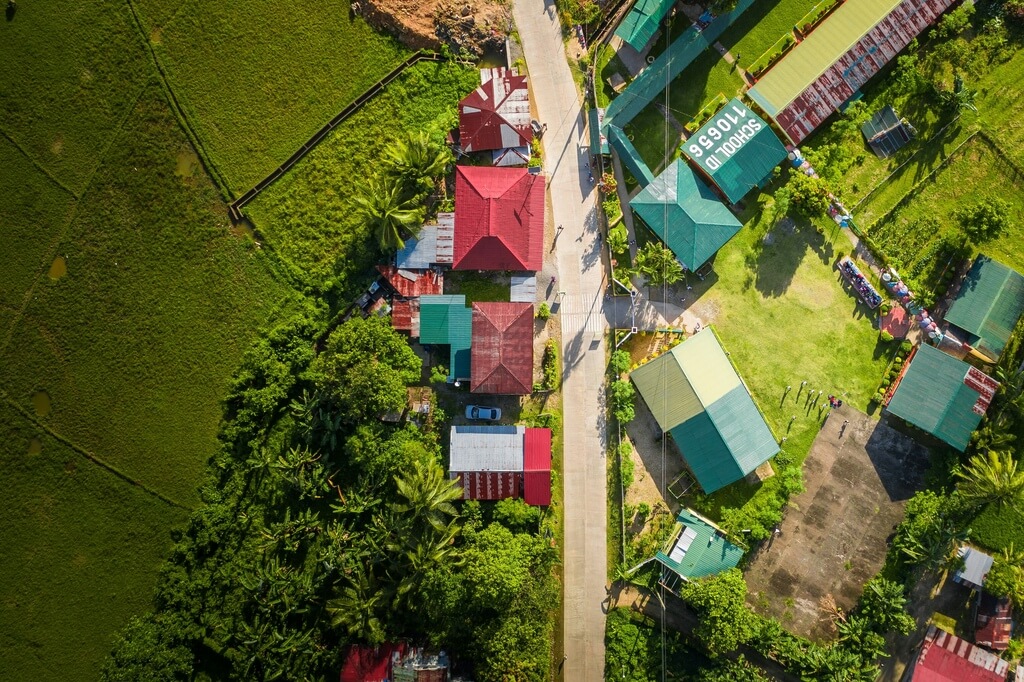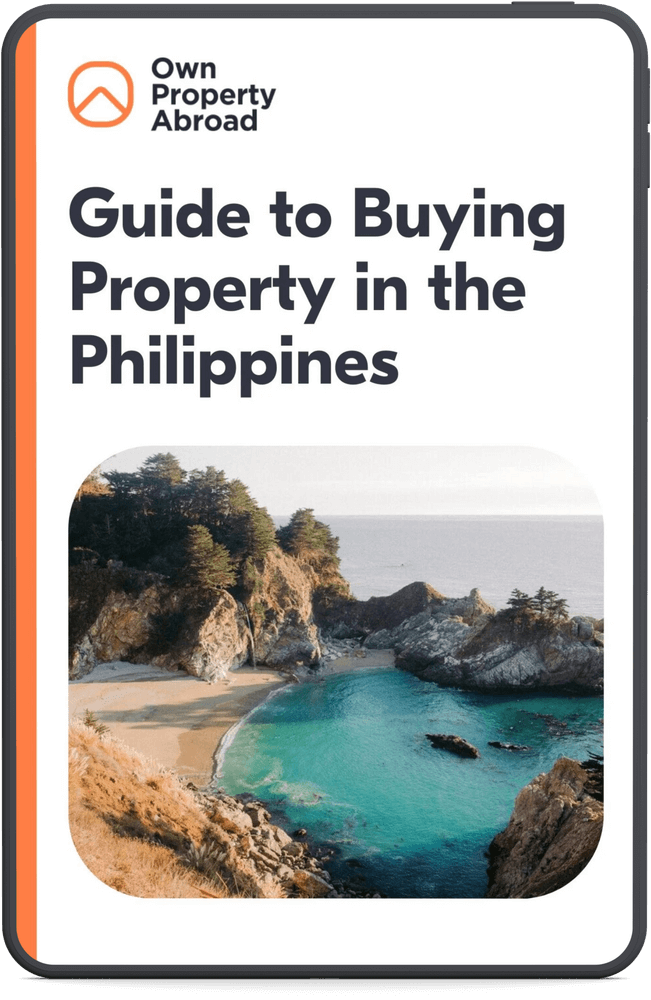What is Rights Only property in the Philippines?
Rights Only property refers to estates or pieces of land under the government’s control and given to relocated low-income families. This means these properties are accompanied by a Tax Declaration or rights rather than a traditional land title. Documents for these types of land ownership in the Philippines are obtainable from the municipal’s Local Urban Poor Affairs and Housing Office (LUPAHO).
This scenario is particularly widespread in the rural provinces of the Philippines. Here, for various reasons, some beneficiaries might not have the funds to register or may find the process too complicated or unnecessary. However, these residential spots often start with Rights Only, but they can eventually transform into legal possession when the government accords them the actual property title.
Difference between Rights Only property and land titles
The primary distinction between a Rights Only property and land titles lies in the form and security of ownership. Here are the differences between them:
Rights Only property
- Granted to relocate low-income families.
- Involves temporary rights to use the property with no land title Rights Only.
- Increased risk of ownership disputes, double sales, and even losing the right to own a house.
Land titles
- Offers legal proof of property ownership.
- It is more secure and well-defined.
- Lower risks associated with fraud and ownership disputes.
Can foreigners buy Rights Only property in the Philippines?
In the Philippines, Rights Only or right of possession property refers to land foreigners cannot legally own. The Philippine Constitution restricts land ownership to Filipino citizens and corporations at least 60% owned by Filipino citizens. This means that foreigners are not allowed to own land in the country, with some exceptions, such as ancestral lands or lands of the public domain that can be acquired through lease agreements.
Foreigners can acquire rights to possess land in the Philippines through various legal arrangements. One option is long-term leases, which typically last up to 50 years and can be renewed for another 25 years. A lease agreement allows foreigners to use the land, build structures, and generate income. However, it is essential to note that these arrangements do not grant land ownership.
Another option for foreigners is condominium ownership. The Philippine Condominium Act allows foreigners to own condo units as long as Filipinos own at least 60% of the building. This will enable foreigners to have property in the country while adhering to the ownership restrictions.
Lastly, foreigners can also consider forming a corporation or partnership with Filipino citizens to acquire and hold land on their behalf. As long as the ownership in the corporation is at least 60% held by Filipino citizens, the company can own land in the Philippines. This allows foreigners to possess land indirectly through their involvement in the corporation.

Types of Rights Only property ownership
Rights Only property ownership must be understood to evaluate such investments properly. These are the two property rights in the Philippines:
1. Rights of land ownership
Selling rights of land ownership in the Philippines often refers to a situation where the property owner possesses the right to own a house and modify the land. Here, the owner can grow crops, build a home or a commercial building, or sell these rights to another party. However, the owner does not have absolute rights over the property, limiting their ability to manage the land freely.
Land rights in the Philippines are primarily governed under the Torrens system. Registering under the Torrens system provides considerable protection, but a significant portion of land remains unregistered.
2. House and lot Rights Only
In a house and lot Rights Only scenario, the rights of buyers in real estate in the Philippines acquire the legal rights to own a house and lot without a formal land title. The government typically grants this type of right to relocate low-income families.
Although some people might see them as attractive financial investments due to their affordability, the legal risks can be significant. A Certificate of Title is the best proof of rightful ownership over any piece of land or property. Obtaining the title to a property under the house and lot rights can take years.
Potential benefits and risks of buying a Rights Only property in the Philippines
Buying property in the Philippines can be profitable but also carries dangers. Here are some of the benefits and risks:
Benefits of buying Rights Only property
It may hold some appeal to investors for the following reasons:
- Affordability: These properties are significantly cheaper than those with full ownership rights. This lower cost makes it an attractive entry point for novice investors and low-income families.
- Potential for full ownership: Some properties that start as Rights Only in the Philippines can become legal possessions when the government transfers the property title to the occupant.
Risks of buying Rights Only property
While there are many potential benefits, there are also risks involved:
- Unclear ownership: There’s a risk of unknowingly buying the property from an individual who isn’t legally entitled to sell it. Such scenarios could lead to legal disputes, as doing so violates the law against selling property you don’t own in the Philippines.
- Double sales: It is where one property is sold to two or more different buyers. These situations can lead to financial loss and prolonged legal battles.
- Lack of legal protection: The absence of a proper title also limits the buyer’s legal protection. A Certificate of Title is needed to prove ownership of real estate.
- Delayed title ownership: Obtaining the Certificate of Title for a Rights Only property could take years or might not come at all. This delay leads to an uncertain situation where the buyer lacks a sense of security due to not possessing proper ownership documents.

Buying a Rights Only property in 5 steps
Buying property in the Philippines is a complicated process that involves several steps and careful navigation through the legal system. Here is the five-step process of buying a Rights Only property:
Step 1: Property identification
Identify potential Rights Only properties that fit your investment strategy. These properties are usually found in regions and provinces outside major cities. They can also be found through government agencies or the Local Urban Poor Affairs and Housing Office (LUPAHO).
Step 2: Conduct due diligence
When selling land ownership rights in the Philippines, it is crucial to conduct thorough due diligence before proceeding with the purchase. Research the property’s history and ensure that the seller has the right to sell it.
Step 3: Validate land usage
Investigate the zoning ordinance of the area where the property is located. This is critical to ensure that property rights in the Philippines can be used for your intended purpose. Specific clearances are required from the local government to obtain a building permit or a permit to operate a business.
Step 4: Transaction and payment
Once you have thoroughly checked and are satisfied with all the details, you may proceed with the transaction. Ensure it follows the correct process, adheres to local laws, and protects your interests. Always have an official receipt for your payment.
Step 5: Plan for title registration
While acquiring the official Certificate of Title for a Rights Only property can take years, planning for this step early on is crucial. Registration of unregistered property under the Torrens system is discretionary in the property owner’s role. However, registering your title within this system will provide added legal protection.
Need help buying property in the Philippines?
Do you need help with buying property in the Philippines? Own Property Abroad makes your property purchase in the Philippines seamless and stress-free. Whether you need help with documentation, negotiations, or finding the perfect property, our expert team is here to support you every step of the way. Leave your name and email below or email us directly at [email protected] for personalized assistance. Get professional help today and ensure a smooth property buying experience!
Frequently Asked Questions (FAQs)
What does House and Lot Rights Only mean?
House and Lot Rights Only means that the seller claims ownership but doesn’t hold a legally recognized title to the property. It means the seller does not have the land rights to land title in the Philippines. Buyers should proceed cautiously due to the higher risk involved.
What does Rights Only mean in the Philippines?
Rights Only in the Philippines refers to properties with no land title Rights Only. There is no Certificate of Title, thereby lacking official proof of ownership. The buyer acquires claimed rights to the property from the seller, but ownership isn’t legally recognized.
Can a foreigner own land in the Philippines?
Foreigners cannot directly own land in the Philippines. However, they can own condominium units through land leasing or via Filipino spouses or family members with Philippine citizenship.
What is the difference between land rights vs. land title?
Land rights are claims to the property, while a land title provides legal proof of ownership. When buying a lot in the Philippines, choosing properties with a land title is safer as it ensures recognized ownership.







6 Responses
Nice info.. thank you maam.. but do you have a site of LUPAHO where can i see the list of rigts only properties??
Hi Mark, there isn’t a specific website called “LUPAHO” that lists rights-only properties in the Philippines. However, you might check with the local government units or the Registry of Deeds for information about properties available under specific conditions or rights.
Do all municipalities have a LUPAHO or related agencies that can answer queries or legalities?
Hi Toto! Not all municipalities have a LUPAHO, but related agencies or local government offices can usually answer queries or legalities regarding land use and planning.
Hello! I currently have a rights only property in Quezon province. I am not the original owner, and purchased this from the 2nd owner. I have clear documentation of the transactions from the original owner to the next, and from them to me. How do I register this property in the Torrens system?
To register your rights-only property in Quezon province under the Torrens system, you’ll need to start by converting the rights into a proper title. This process typically involves validating the chain of ownership and ensuring all documents are in order. You may need to work with the Register of Deeds and possibly secure a lawyer to help you navigate the legal requirements and file the necessary paperwork. This will ensure the property is officially registered under your name in the Torrens system.